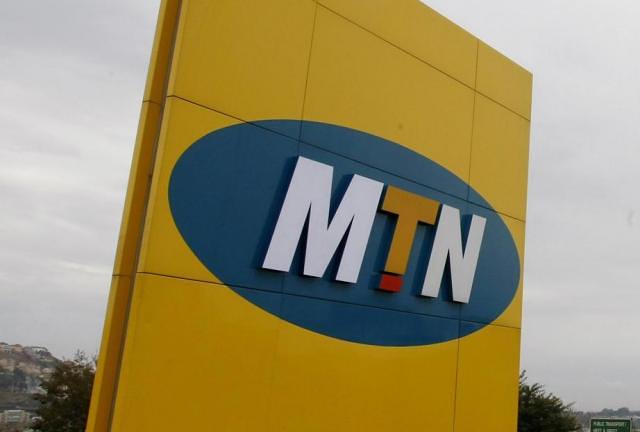Stakeholders in telecoms industry Tuesday in Lagos agreed that further auctioning of telecoms spectrum should be conducted in a way and manner that will accommodate more operators in form of sharing and trading model capable of encouraging aggregate investments by parties.
Leading the pack of the new idea at the annual consultative forum on engineering and emerging technologies, was Frasier Graham, Senior Director, Policy Engagement at GSMA who set the ball rolling on the need for regulators to help redistribute scare resources by coming up with a trading format that will accommodate every stakeholder than a winner-takes-all model.
He said such trading format will among other things create more value for wider usage and discourage monopoly in the industry.
Corroborating Graham’s views, Cameroonian expert and senior technology officer at Atlantic Communications UK, Prof. H. Nwana said “Time has gone when the use of command and control is working in spectrum trading. He said the best bet now remains market mechanism driven sales which tends to reduce incidences of command and control.
According to him, liberalization will pay nations better in the management of spectrum as the model will favour the highest value user than mere owner.
He said another policy that works better alongside liberalization is keeping spectrum trading simple and easy to enter by investors.
In his presentation which ran in tandem with others, pioneer Executive Vice Chairman of NCC and chairman, Open Media Group, Engineer Ernest Ndukwe described spectrum trading as the “next big thing in Nigeria’s telecoms revolution” and that going by the surge in data traffic, in years to come voice services may become free or at a paltry tariff.
He argued that broadband holds the key for the future in telecoms and therefore should be handled with care, saying communications tax and any form of inhibition to access to internet will drop Nigeria’s volume of connected persons.
Earlier in his remarks at the conference on the theme: Framework for Spectrum trading in Nigeria, the Executive Vice Chairman of Nigerian Communications Commission (NCC), the organizers of the forum, Prof Umar Danbatta said the forum is in line with the strategic objective of the Commission, ensuring that the dynamic industry we regulate is constantly assessed, and appropriate regulatory frameworks provided to guide the industry. It is our practice and tradition, and in line with best practices, that stakeholders are consulted and engaged in the development and implementation of any regulatory instrument for the industry.
He added that “The Nigerian Communications Act (NCA) 2003 empowers it to ensure Optimum utilization of Radio Spectrum for the provision of telecommunications service as well as provide an enabling environment for the growth and development of the telecoms industry for the Danbatta noted further that the Commission intends to review the Spectrum Management Policy and develop additional strategies to meet the increasing demand for spectrum by the Operators due to expansion of access to mobile services and improvement of quality services delivered by explaining more on the importance of Spectrum Management Policy, he said “An effective Spectrum Management Policy is critical to support the investment in the sector required to expand mobile access. The Nigerian telecoms environment is rapidly expanding and increasing demand for different data services have put considerable pressure for more spectrum by the Operators to deliver services as well as enhance quality of services offered.
“The objectives of the Commission’s Spectrum Management Policy depends on the market circumstances, how the available spectrum is currently used, the competitiveness of the market.
“Spectrum Trading as we may know, is spectrum Management practice that permit transfer of Spectrum license Rights and obligations from one party to another in various forms and scope after a commercial transaction duly approved by the Commission. It is basically a secondary mechanism of assigning Spectrum with the capability of unlocking the potential of new technologies and reducing barriers to new entrants in the industry.
“Spectrum trading is now seen as a key step to be taken in the reform of spectrum management regulatory practice eliminating the artificial scarcities of spectrum which increases the prices of spectrum using services and the affects the competitiveness of different companies.
Danbatta argued that Spectrum Trading is envisaged to further liberalize the Spectrum Management Policy and lead to among other things efficient, economic and flexible transfer of spectrum to users who value it most; Lessening of barriers to market entry by allowing flexible access to spectrum more readily; Promotion of the developments of market competition; Further innovation as entrepreneurs acquire spectrum and offer new services; and Creation of opportunities for new investors.
EVC hinted that “The Commission is developing a Framework and Guidelines for Spectrum trading in Nigeria and this Forum will have many paper presentations by Resource persons invited to shed more light on this topic and thereafter there will be discussions by the discussants of the topic and contributions from the various stakeholders. The outcome of the Forum will be integrated and contribute to the conclusion of the development of the Spectrum Trading Framework and the Guidelines for Spectrum Trading in Nigeria”.








